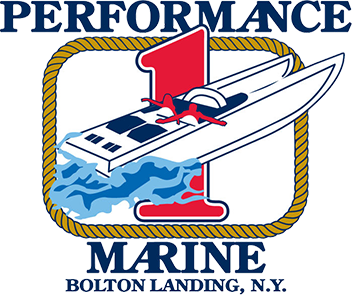Fund’s Langmuir Award Winner Pays Tribute to Lake’s Nobel Laureate
Dr. Jeff Short, who was retained by The Fund for Lake George to prepare for publication the thirty years of worth of water quality data collected by the Darrin Fresh Water Institute and who has served as a consultant to the Jefferson Project, was awarded The Fund for Lake George’s Irving Langmuir Award at the organization’s annual meeting on August 16 at the Sagamore.
The award is named in honor of Dr. Irving Langmuir,
the Nobel laureate who lived on Crown Island, and was presented to Short by Roger Summerhayes, Langmuir’s grandson.
“As a renowned research chemist and leading expert on the ecological impacts of oil spills worldwide, Dr. Short brings great expertise to understanding the science of Lake George at this critical time,” said Summerhayes. “My grandfather would have admired and have encouraged Short in his work: gather the data, tease out the trends, take action based on fact rather than anecdote.”
Short noted that at the start of his scientific career, Langmuir was a source of inspiration.
“He was curious, in all senses of the word. He was a character, capable of more than a little mischief-making, and he was fiercely devoted to the pursuit of truth, acutely aware of the saying often attributed to Mark Twain that “it’s not what you don’t know that gets you, it’s what you know for certain that just ain’t so.”
“Langmuir was fascinated by interfaces. One of his many famous discoveries that fascinated me as an undergraduate is called the Langmuir adsorption isotherm, as simple equation that accurately describes how temperature affect the adsorption of gas molecules on the surface of solids.
“Another was his discovery of Langmuir circulation, made right here on Lake George while at his summer home on Crown Island. Through a series of simple experiments involve little home-made floats, he figured out why wind blowing across the surface of a body of water creates parallel lines of foam, an observation that puzzled mariners literally for millennia.
Langmuir was awarded the Nobel Prize in 1932 for his work on surface chemistry. He was also an early advocate for the protection of Lake George.
With John Apperson, he initiated a project to rip rap the lake’s shorelines, helped acquire and protect Dome Island from development and forced New York State to assume authority for the management of Lake George’s water levels.
According to Short, who recently retired from a 31-year career as a research chemist at NOAA, Langmuir is a model not only for the researcher, but for scientist’s responsibility to his community.
“I like to think that perhaps the greatest legacy of scientists like Langmuir has been the inspiration their examples set for subsequent generations of scientists, to face facts no matter what the implications for their personal careers.
“I look forward to watching the Jefferson Project unfold, and I’m sure that the insights that it produces will enable us to preserve Lake George as the magnificent resource it is indefinitely. But I’m equally sure that this will require the kind of integrity so obviously cherished by Irving Langmuir,” said Short.






